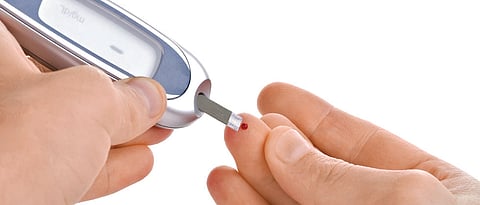

Pune: In a recent study, it was revealed that the incidence of poorly controlled diabetes was found to be the highest in the age group of 50-60 years (about 26 per cent), followed by 60-70 years (about 24 per cent) and 40-50 years (21 per cent). The incidence was the lowest in the age group of 20-30 years (8 per cent) but increased steadily to a peak in the age group of 50-60 years.
Out of a total of 2,78,376 samples tested for HbA1c over the last five years in Pune by Golwilkar Metropolis Healthcare, it was found that as many as 20 per cent were found suffering from poorly controlled diabetes.
Interestingly, 18 per cent of all females tested were found to suffer from poorly controlled diabetes, compared to 23 per cent for males.
The term HbA1c refers to glycated haemoglobin. It develops when haemoglobin, a protein within red blood cells that carries oxygen throughout your body, combines with glucose in the blood resulting in ‘glycation of haemoglobin’. By measuring glycated haemoglobin (HbA1c), clinicians can get an overall picture of what the average blood sugar levels have been over A1C over approximately 3 months.
For people with diabetes, this is important as the higher the HbA1c, the greater the risk of developing diabetes-related complications.
About 20 per cent of samples tested for HbA1c reported levels greater than 8 per cent, which means that their blood glucose levels are not controlled. Prolonged high blood glucose levels put diabetic patients under risk to develop diabetes-related complications.
Commenting on the study, Dr Manish Karekar, Chief Pathologist, Golwilkar Metropolis, Pune, said that diabetes is a growing challenge in India with estimated 8.7 per cent diabetic population in the age group of 20 to 70 years.
“The rising prevalence of diabetes and other non-communicable diseases is driven by a combination of factors – rapid urbanization, sedentary lifestyles, unhealthy diets, uncontrolled use of alcohol and tobacco. Lifestyle interventions like sleep, exercise and diet modifications along with regular monitoring is a must for diabetes management,” said Karekar.
